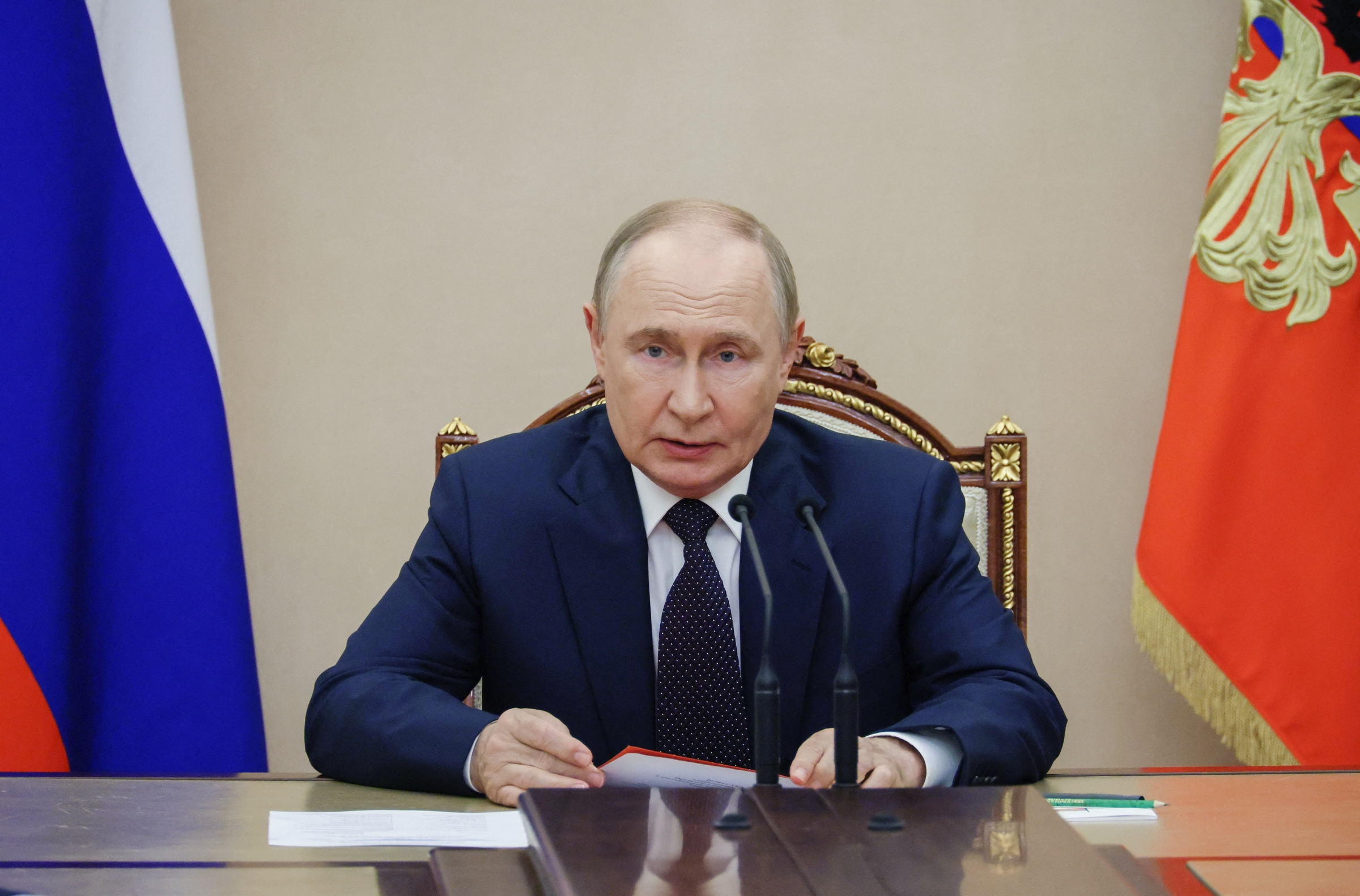In a meeting with senior Russian officials at the Kremlin today, President Vladimir Putin stated, "The US administration is making quite strong and sincere efforts to end the fighting, end the crisis, and reach agreements that benefit all parties involved in this conflict." Putin briefly discussed the ongoing negotiations with the US regarding Ukraine. He is scheduled to meet with President Donald Trump in Alaska on 15/8 for their first summit since June 2021.
"This meeting will establish a long-term foundation for peace between our two countries, for Europe, and for the entire world if we can reach an agreement on strategic offensive arms control in the next phase," Putin said. This comment suggests that the Russian president intends to raise the issue of nuclear arms control during his meeting with his American counterpart.
 |
Russian President Vladimir Putin at the Kremlin, Moscow on 8/8. Photo: AFP |
Russian President Vladimir Putin at the Kremlin, Moscow on 8/8. Photo: AFP
Russia and the US possess the world's largest nuclear arsenals. On 4/8, the Russian Ministry of Foreign Affairs announced that Moscow would end its commitment not to deploy intermediate-range and longer-range missiles, a pledge maintained after Washington withdrew from the Intermediate-Range Nuclear Forces Treaty (INF) in 2019.
The INF, signed by the US and the Soviet Union in 1987, marked the first time world powers agreed to reduce their nuclear arsenals. The treaty prohibited both sides from developing ground-launched cruise and ballistic missiles with ranges of 500-5,500 km. After the collapse of the Soviet Union, Russia inherited the INF treaty.
The Trump administration withdrew from the INF in 2019, accusing Russia of developing the 9M729 missile with a range of nearly 5,000 km. Moscow denied the accusation, asserting the missile's range is 480 km and criticizing Washington for not adhering to the treaty by placing Aegis Ashore systems capable of launching 2,500 km-range Tomahawk cruise missiles in Europe.
Russia then imposed a unilateral restraint, declaring it would not produce or deploy missiles banned under the INF as long as the US did not deploy such missiles globally. However, Washington has repeatedly tested ground-launched, intermediate-range missiles capable of carrying nuclear warheads, weapons prohibited by the INF. In April 2024, US officials brought the Typhon system, capable of launching Tomahawk cruise missiles, to the Philippines for joint military exercises.
The New START treaty, the only remaining nuclear arms agreement between Moscow and Washington, is set to expire on 5/2/2026. Signed in 2010 and entering into force in 2011, New START was extended for another 5 years in 2021, shortly after Joe Biden took office.
New START limits each side to deploying no more than 700 intercontinental ballistic missiles (ICBMs), submarine-launched ballistic missiles (SLBMs), and nuclear-capable bombers, with a cap of 1,550 nuclear warheads on these platforms. Both Russia and the US could exceed these limits if New START is not extended or replaced by another agreement.
Nhu Tam (According to TASS, AFP)












